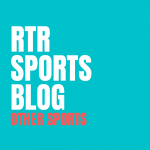In order to understand the enormous power of sport sponsorship, and its effectiveness for businesses all over the world, a look at the Premier League clubs’ kit deals could be enough. Out of the 20 teams composing the richest football Championship in the world, only 4 are actually firms from the UK (Liverpool’s Standard Chartered, Southampton’s FC Virgin Media, Stoke City’s Bet365 and Watford’s FX Pro). There could be debate whether Newcastle United’s Fun88 and Swansea’s Letou should make this list, but, technically, they’re from the Isle Of Man.
More important than that, however, is the count of the non-European sponsors in the Premier League: 12. Take American powerhouses Chevrolet and American Express off the list and you’re left with 10 major companies from Asia and the Middle East.
The same applies to other major series and championships around Europe
While in La Liga the Japanese giant Rakuten and Emirati airline FlyEmirates grace the tops of FC Barcelona and Real Madrid, other Asian car-industry behemoths such as Dacia, Hyundai, and Suzuki make their appearances on the kits of several Italian and French squads. The same story, of course, goes for Formula 1 where the logos of Petronas, Weichai and Singha and many more are sported on the liveries of Mercedes AMG and Ferrari. The list is, potentially, infinite.
So why are foreign sponsors flooding European sports?
In a recent CNBC interview, Tom Glick, Chief Commercial Officer at City Football Group, the parent company at top-of-the-League club Manchester City, described sports as “the ultimate reality TV”. Glick said: “I think there’s been a recognition that sports works. Not only is it the ultimate reality TV but it’s a great way to engage a consumer or to engage somebody that’s running a business”.
European Championships and series, such as the Premier League, the Bundesliga, the Serie A and the MotoGP Championship, or with a very strong European heritage such as Formula 1, still represent the pinnacle of sporting entertainment for a large part of the globe and an excellent business opportunity for Middle East and Asian brands willing to go global.
Moreover, Europe is still one of the main target markets for a lot of foreign sponsors and brands. England, France, Germany, Italy, Belgium, the Netherlands and many more are strong economies with developed industries and high-spending customers and clients: it’s therefore no surprise that firms and companies from the Far East or the Americas are trying to land deals in the Old Continent.
It’s not only that, though. There’s something more in European sports that appeals to the fantasy and the desire of brands and sponsors from outside the EU. What is foreign sponsors are therefore seeking in our sport? It’s hard to answer without naming a number of mixed reasons, that have a lot to do with the legacy, the tradition and the cultural power of european sports.
Ultimately, foreign sponsors are strongly attracted by how deeply rooted in our culture and heritage: it’s more than just fandom or sympathy and it’s clearly defining our identities and our origin. To get a clearer picture, I recommend the superb Netflix docu-series “Sunderland ’til I die”, based on the Sunderland Association Football Club and its relegation in the second and then third tier of English Football. It’s hard to describe the incredible bond between the citizens of Sunderland and their team, their high spirits when the team finally wins and the sense of doom and gloom over the town when the squad eventually encounters defeat.
Benefits
Should we break down a list of unique benefits, these could be:
- Contrary to traditional advertising, sport sponsorship programs overcome a lot of cultural and linguistic barriers, taking a weight off the brand’s shoulders when it comes to replicating their communication and marketing materials for different countries and audiences.
- When entering new markets, big sponsorship deals are quicker to generate awareness and turn a profit, as the exposure is immediate toward fans, stakeholders, media personnel. Traditional advertising campaigns, on the other hand, have an “assimilation gap”: an interval between the first airing or publishing and the moment it changes a modification on the customer’s behavior.
- Successful series, as the ones we’ve mentioned above, provide large audiences and global reach, and their echo virally resonates through different media with long-tail effects.
- Big clubs and popular sports carry an extraordinary array of values and principles brand love to embrace. Passion, effort and the eternal quest for perfection are qualities these companies need to promote in order to reach marketing and commercial success.
- European clubs and sports are, undoubtedly, “cool”. A coolness often lacked by Asian and Mid-East companies that need to up their game when it comes to winning western customers
- For these businesses, sponsorship deals with major EU clubs and series also serve as a successful bridge to B2B works with continental companies. More and more often sponsorship packages create a sort of “virtual hub” for these foreign companies to boost their presence also among other companies, not only among new customers.
Long story short, for such fast-growing brands emerging from Asia and the Middle East, European sports are the perfect tool to reach new markets, increase sales and boost their B2B operations in key areas, and sponsorship is the perfect tool to quickly reach their commercial and marketing goals.
If you have any curiosities about international sponsorships do not hesitate to contact us at info@rtrsports.com
















